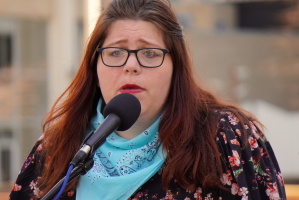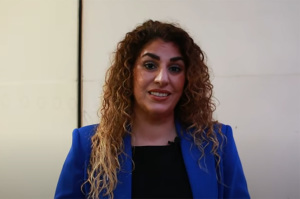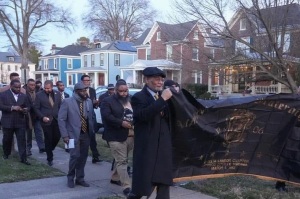Common Core, School Failure and the Church to the Rescue?
Schools across the country are now testing children on their successes based on the Common Core Curriculum. Several aspects of this new step in the education systems have become controversial in New York City, my town, and in numerous other places.

In New York the new guidelines were adopted by NY State Education Department in May 2005, but most teachers were never informed of the standards or prepared to teach them. If the teachers are not trained in the new curriculum, how can the students be expected to do well on these imposed exams? And if students fail at what the education establishment failed to teach the teachers, why are teachers punished?
The biggest problem with the "Common Core," one school administrator explained to me, is that it is "uncommon." It has not been taught in the classrooms, so it makes no sense to give the exams now.
The children will lose the most. Unless their parents, church, or others in their communities give the children additional help, the children will do even worse on the Common Core exams this year than they did on the regular exams last year. In New York City, my town, 80 percent of the public school children scored below grade level on the older exams last year.
How did we get here? How could such smart people create a perfect disaster with new failures for too many children and new exasperations for the teachers to whom we entrust their futures?
More importantly, what can you and I do about it?
The increasing failures of our schools are not primarily the fault of the education establishment or the teachers. The problem is that we dismantled the prize-winning, God-ordained architecture of education that made our country great. It is time to restore the successful education architecture, at least wherever you and I have influence.
Children learned better when we had three pillars in the education architecture: the home, the church, and the schools. If you take away the first two, the future of the children in our communities is wobbling on just one tottering education pillar. Not good. The schools, however good they are, cannot bear the full weight of education for the children – for all the children in our communities.
When I presented this three-pillar architecture to a secular education conference recently, the next speaker said, "Dr. de Vries' idea is impossible. The churches are dead and the homes are dysfunctional. All we have are the schools, and we must make them better." I immediately agreed that we can make our public schools better. I also agreed that many churches are dead. However, I added, "We in the church still believe in resurrection power, and a resurrected church can rise to its role as an essential pillar of education – and also help minister to the dysfunctional homes."
What really matters here?
- We all have responsibility for the next generation in our communities.
- Unless the churches and homes create positive, nurturing, learning environments, even school reforms will continue to fail.
- Significantly, the most prominent indicator of children's future success in school is the reading a child does that is totally unrelated to school or school assignments – such as in the church or home.
- With our schools mostly secularized, the only sources of meaning for life for children in communities will be communicated in the churches and the homes. We must succeed at this for the future leaders and citizens to have values that work.
Step by step, we need to restore the churches to their educational roles as strong pillars. Here are some suggestions.
1. Reinvent and revitalize Sunday schools for children, youth, and adults –
not just "baby-sitting" or "fun and games" during the "adult" worship service. Most of a 60-75 minute Sunday school session should be spent in deep, serious, fun Bible engagement using resources like the 7WordWonders. The 7WordWonders curriculum uses the Bible to cultivate multifaceted language arts to equip children, youth, and adults. This Biblical curriculum also teaches the nuances of language arts that are also important to the Common Core curriculum. With those strengthened language arts, these students are skilled for all reading – including especially the Bible. Students experience and learn the seven dimensions of language as they engage the Bible texts. Mastering the seven dimensions helps to also enhance the students' word-power in every subject, and their reading and love of the Best Book will grow even more. Revitalized Sunday schools can be powerhouses of hope and change.
2. Include parent and child guardian training during Sunday school and/or other times. The churches have more positive influence and authority than most schools for restoring homes.
3. Create 2-3 hour Saturday morning language arts programs, using the Bible as the main text. Let the whole community know that your church is giving their children a boost for word mastery, using the Best Book. There are plenty of fun and fruitful ideas in each lesson of the 7WordWonders. (At the historic Calvary Baptist Church in Manhattan, this is the only curriculum for the very successful Saturday morning Reading and Phonics Program (RAPP). The teachers in the RAPP program are all volunteers, trained by the church for this fruitful outreach.)
4. Add after-school programs one or more days of the week – including a 15-30 minute focus on deep, serious, engaging Bible study, again using resources like the 7WordWonders. Then encourage the children in their homework or elective reading.
5. For any of these church-based educational programs, selecting and training committed volunteer teachers is crucial. Monthly teacher insight-and-encouragement sessions can empower continued teacher vibrancy and also enhance educational quality for the benefit of both the students and teachers.
6. Sponsor a community-wide reading contest for different age groups – with recommended books and weekly discussions on those books.
7. Start something else that better fits your church's potential while it meets the needs especially of school-age children in your congregation and in your community. Most parents would be delighted to hear of an opportunity to encourage their children to read more – especially if the Best Book is the main text. Help parents meet that need, and other doors may open as well.
These and other ideas are developed further in the OVERVIEW of the 7WordWonders.
At this time, we have a HUGE GIFT, a golden opportunity to get a jump start on church-based "language arts" development for the children. You can start a pilot program for 10 weeks, and then improve on the program going forward. With the "A.D. The Bible Continues" epic series continuing every Sunday evening on NBC until June 21, it is the perfect opportunity to host what is fun but also deep, serious Bible engagement on some of the texts that are dramatized so powerfully on Sunday evenings. The free 7WordWonders lessons now at www.7WordWonders.com are written especially for that purpose, as I mentioned in an earlier essay .
What a time of dramatic educational need! What a splendid opportunity for churches to start freely restoring their roles as pillars of education with the best resource, the Bible! The Bible is so well written that it powerfully models the seven dimensions of language, and learning those dimensions helps both students and teachers to appreciate the Bible's truths even more.
Some may be angry at intrusive and inept governments and education bureaucracies, but let us put our energy into benefitting the children with the seven-dimensional word-power, the life wisdom, and the spiritual truths we can be teaching from the Bible. An engaged church is still an essential pillar for the education of all the children in our communities.





























